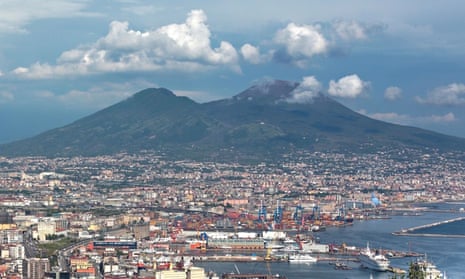Ours is an increasingly risk-averse society. It has become a conversation point to wax nostalgic about the days when children walked unaccompanied to school and played marbles in the street. I, myself, aged not quite five, was put on a train, with a label in my buttonhole, and sent from London to Liverpool to visit my grandparents with no adult supervision beyond the guard. And – surprise, surprise – psychologists report that the result of this nannying is to produce a society of anxious, unconfident adults with wobbly self-esteem and a dangerous inability to trust their own judgments.
Polly Morland’s brisk and thought-inducing book takes a forensic look at nine examples of modern risk, and on the way delivers acute and entertaining insights. As with her previous book, The Society of Timid Souls, her range of examples is wide.
Her first foray into an environment of contemporary risk-taking is one of the book’s most cheering chapters. It describes a play experiment in Plas Madoc, north Wales, where, rather than the specially laid “soft” flooring and tasteful wooden or brightly painted apparatus of most play areas, the kids are let loose on what is essentially a junkyard. Where most playgrounds leave me feeling weary, Morland’s descriptions of Plas Madoc’s juvenile customers hacking away with rusty saws and throwing themselves off heights made me keen to join in. She quotes play theorist Brian Sutton-Smith: “The opposite of play is not work. It’s depression.” Too right. I’ve long felt that we are raising a generation of depressives through our policy of sending children betimes off to school and away from creative play.
What is so enlivening about this book is the way Morland careers from, for example, children’s play to life on the slopes of Vesuvius – her next example. The accounts of first a volcanologist, who believes that the catastrophic consequences of another eruption are woefully underestimated, and the elderly couple who have contentedly spent their life on the shoulders of this sleeping enemy provide a fascinating insight into human psychology. While at one level we are profoundly risk-averse, at another we are almost stupidly risk-blind. And yet, Nietzsche, visiting Vesuvius, reversed his previously gloomy philosophical outlook and declared: “The secret for harvesting from existence the greatest fruitfulness and the greatest enjoyment is – to live dangerously. Build your cities on the slopes of Vesuvius.”
As Morland shows elsewhere in the book, Nietzsche’s advice often results in the emotional energy that fuels success, bringing concomitant wealth. It is well established that successful people are less risk-averse than the norm, as Japanese businessman Tetsuro Hama, restaurateur and car salesman, exemplifies. Morland is clearly a sympathetic interviewer, and Hama’s story of flight from an economically depressed Tokyo to become a brilliant entrepreneur, basically busking as he went along, is rags-to-riches satisfying.
As is the story of French ballet star Dorothée Gilbert, whose parents packed up their successful Toulouse business to accompany their daughter when she won a coveted place at the Paris Opera Ballet school. The message here is that to achieve the higher aim it is necessary to be willing to jettison what you already have.
While the book is clearly biased in favour of the Nietzschean outlook (and is the more welcome for that), Morland balances her examples with an absorbing description of the characteristics of air traffic controllers, where obsessive risk-aversion is a mortal necessity and communal responsibility displaces individualism. Air traffic controllers apparently exhibit “collective mindfulness”. “They ‘worry chronically’ about what can go wrong and they feel a sense of shared and individual accountability for ensuring that it never does.”
This is altogether a delightful book. A dose of measured sanity in an often dotty world. It should be required reading for the next education secretary, and I shall give it to all the parents in my family.
Risk Wise is published by Profile (£8.99). Click here to buy it for £7.19

Comments (…)
Sign in or create your Guardian account to join the discussion